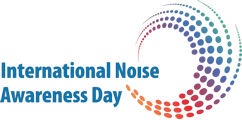the facts about noise-induced hearing loss
Noise is one of the leading causes of hearing loss in the 48 million people with impaired hearing in the United States, and health statistics suggest a trend that the incidence of hearing loss is occurring at younger and younger ages. Noise-induced hearing loss, though preventable, is permanent.
what is loud enough to cause noise-induced hearing loss
To know if a sound is loud enough to cause damage to your ears, it is important to know both the level of intensity and the length of exposure to the sound. The unit used to measure environmental sound intensity is the decibel (dBA). Zero decibels is approximately the softest sound the healthy human ear can hear. The scale increases logarithmically; that is, the level of perceived loudness doubles every 10 decibels. Experts agree that continued exposure to noise above 70 dBA, over time, will eventually harm hearing. In general, the louder the sound, the less time required before hearing will be affected.
how the damage occurs
Loud noise assaults the delicate hair cells of the inner ear. Noise-induced hearing loss typically occurs gradually and without pain. After exposure to loud noise, a person may experience ringing in the ears or difficulty hearing. This is called a “temporary threshold shift”. After a few hours (or in some cases, a few days), this temporary shift in hearing returns to normal. With repeated exposure, however, this temporary shift in hearing can become permanent. Once permanent hearing damage has occurred, it is not possible to restore hearing.
pay attention
Noise-induced hearing loss is cumulative across the life span. Often, by the time a person realizes that there is hearing loss, it is too late. But there are certain early warning signs to suggest that there may be a problem.
If after a noisy experience you sense ringing or buzzing (tinnitus) in the ears immediately after exposure to noise, and/or slight muffling of sounds, making it difficult to understand people, your ears are giving you warning signs.
Have your hearing tested by a licensed audiologist and/or examined by an ear doctor.
protect your hearing
To avoid noise-induced hearing loss, pay attention to the noises around you and turn down the volume whenever possible. Avoid or limit time spent in noisy sports events, rock concerts and night clubs. Wear adequate hearing protection, such as foam earplugs or ear muffs, when you must be in a noisy environment or when using loud equipment.
